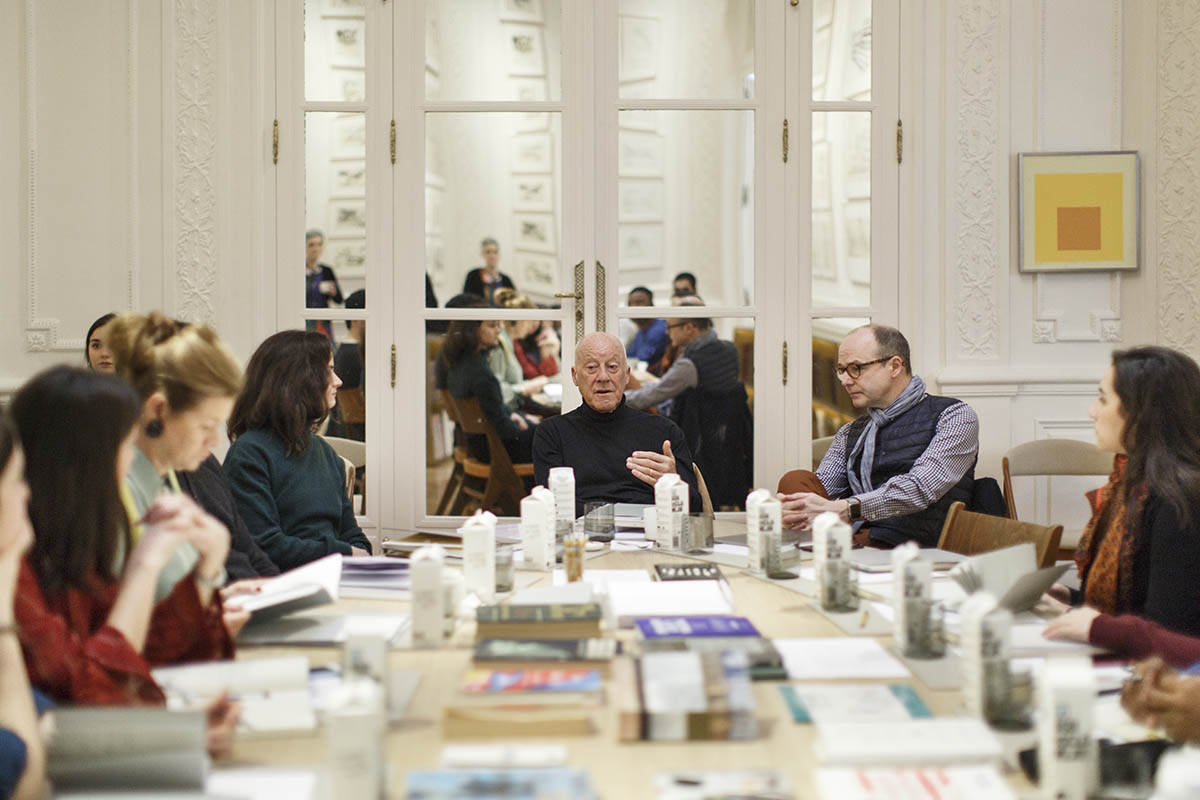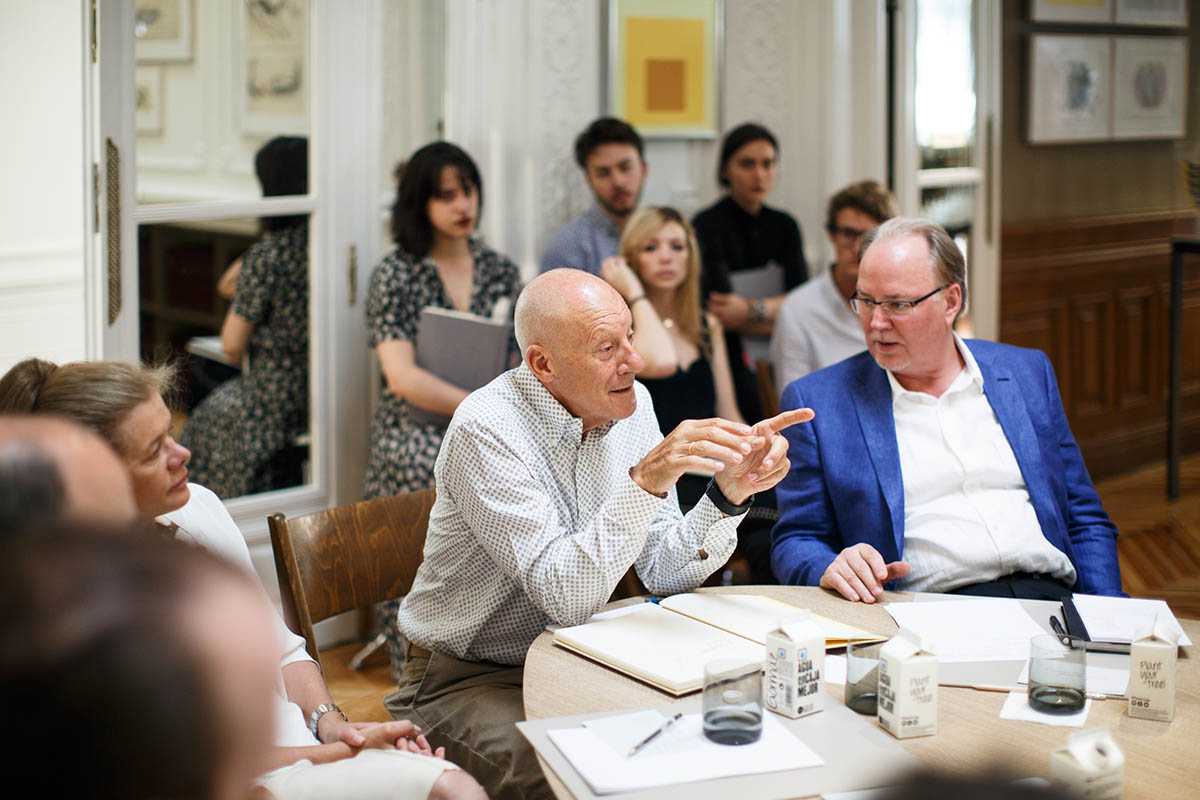Submitted by WA Contents
Norman Foster launches The Norman Foster Institute aiming to "improve the quality of life in cities"
Spain Architecture News - Jun 09, 2023 - 13:40 2840 views

The British architect Norman Foster has launched the Norman Foster Institute, aiming to "improve the quality of life in cities worldwide and address today's most urgent issues in cities".
Launched on 6 June in Madrid, the Institute's team is composed of an international multidisciplinary team of professors, practitioners, and civil leaders led by co-directors Norman Foster and Kent Larson.
The institute's first 36-week academic programme, named On Sustainable Cities, is starting in Madrid in January, 2024.
"The future of our society is the future of our cities— they are our greatest invention," said Norman Foster.
"This institute, in a time of climate change, is addressed to those who wish, through practice or education, to improve the quality of life in cities worldwide."
"In that spirit, the course will combine practical on-site experience with academic input from the Foundation’s network of international experts. These range from university professors to property developers," Foster added.
Video courtesy of Norman Foster Institute
The first course will explore "Foundations, Transformations and Interventions"
The institute's first course On Sustainable Cities will be a 36-week programme that will be held in three stages: Foundations, Transformations and Interventions —with time divided between classrooms, cities and studios.
Foundations stage will consist of an in-depth study of the concepts and processes necessary to understand a city, from its history, governance, ethics and metrics that define sustainable cities. Special emphasis will be placed on understanding the ‘importance of a place’, building upon concepts such as ‘townscape/cityscape’ as well as different strategies of urban- space making.
The second stage, titled Transformations, will provide an understanding of the challenges and opportunities for changes in each city. It will study six of the fields in which a city could be defined: climate & natural environments, networks & mobility, planning & building, resources & energy, economy & social activity and culture & the arts.
The last stage, called Interventions, will enable ideas that reduce embodied and operational emissions and improve public health, creating a new vision for community. This stage is dedicated to testing a range of strategies for sustainable improvement in each field for pilot neighbourhoods.

Image © Pablo Gómez-Ogando, courtesy of Norman Foster Institute
Each year, scholars will be given three pilot cities and they will visit to engage directly with their planners and managers. They will use the most up-to-date digital tools in the quest to improve a sustainable quality of life.
Norman Foster launched the Norman Foster Foundation in 2017 and its mission has been to promote interdisciplinary thinking and research to help new generations to anticipate the future.
"It will start with tools and skills that can be used to address wide ranging issues of cities. For instance, leadership, advocacy, communication, presentation, diagramming, mapping, and the understanding and interpretation of data," Foster explained.
"These could be applicable to cities from Asia, the Middle East, South and North America to Africa and Europe, as well as informal settlements and suburbia."
"The curriculum then narrows down to three pilot cities that scholars will visit to engage directly with their planners and managers. For study purposes, neighbourhoods have been selected in each city to raise an awareness of the issues that affect the living standards for those who live or visit there," he continued.
The course will touch upon today's urgent issues such as carbon footprints, density, mix of uses, equality and affordability, walkability, place making, townscape and landscape, public and private transport, politics and economics, energy, recycling, consultation, interest groups and decision making.
Foster also added that "several of these many issues will be distilled to create a small number of well-defined project assignments which will be addressed by the scholars working on site and in the studio, either in teams or individually."
"In this multidisciplinary approach, the scholars would use the most up-to-date digital tools in the quest to improve a sustainable quality of life."
"In this first cycle of the course the pilot cities will be European, although the methodical approach will be adaptable to other kinds of cities," Foster continued.

Image © Pablo Gómez-Ogando, courtesy of Norman Foster Institute
"The course is like an hourglass"
"Towards the end of the year the scholars will present their findings to the city administration and there will be an emphasis on advocacy and presentation skills. The lessons from these real-life experiences will be documented by film and other media, culminating in a public event."
"On the basis that historically cities learn from each other, it will be important for the scholars to explore the relevance of their conclusions in the wider context of global cities."
"The course is like an hourglass; starting wide in its scope, then narrowing down to focus on tangible issues that can be quantified and addressed, and finally, opening up to a wider debate," Foster concluded.
The Academic Council will include prominent names, including Kent Larson, NFI Co-Director, Director, City Science Research Group, MIT Media Lab, Massachusetts Institute of Technology (MIT), Alejandro Aravena, Francis Kéré, Deborah Berke, Dean, School of Architecture, Yale University, PAU founder Vishaan Chakrabarti, Elena Foster, Vice President, the Norman Foster Foundation.
The Norman Foster Institute, in a time of climate change, is addressed to whose who wish, through practice or education, to improve the quality of life in cities worldwide.
Norman Foster Foundation together with Holcim recently revealed a sustainable housing prototype for displaced people at the Venice Architecture Biennale.
Top image © Pablo Gómez-Ogando, courtesy of Norman Foster Institute.
> via Norman Foster Foundation
academic academic institute education Norman Foster Norman Foster Institute practice
